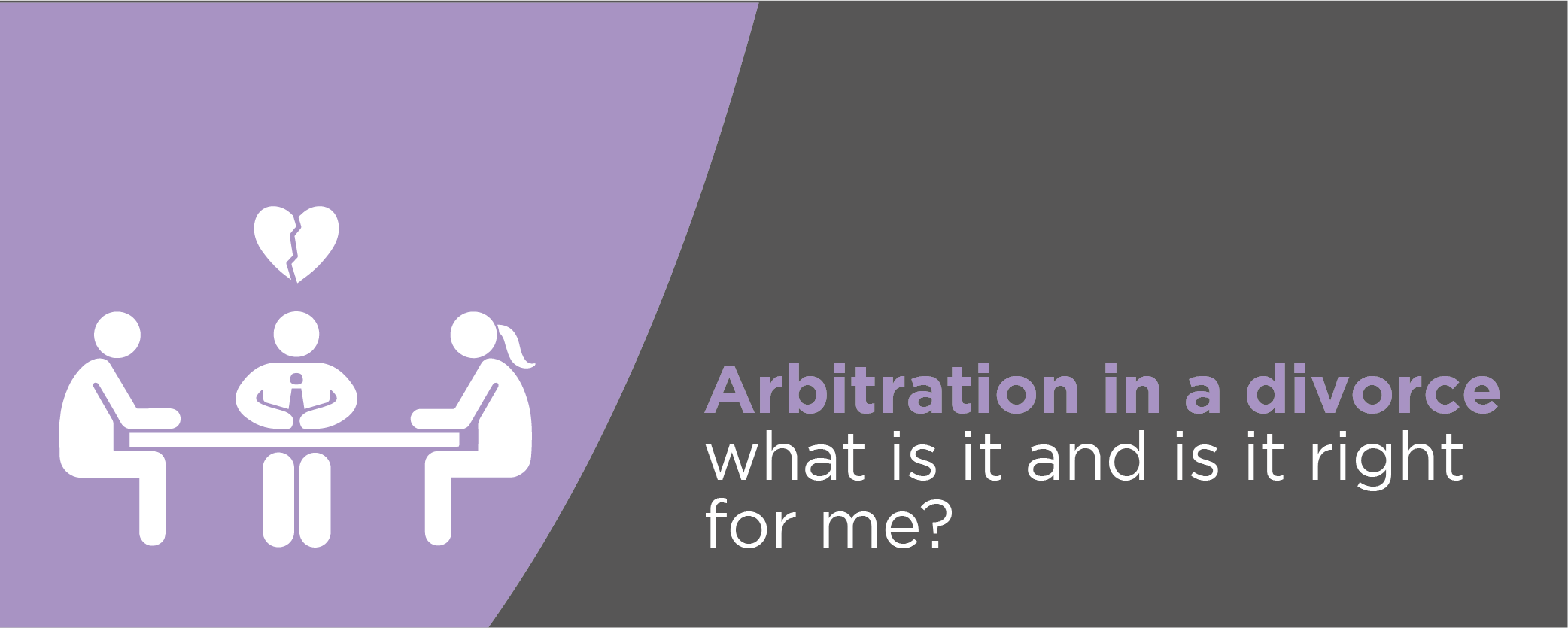- Basildon 01268244144
- Chelmsford 01245453800
- Colchester 01206217300
- London 020 4586 1280

Arbitration is an alternative dispute resolution method that allows you to resolve your differences without going to court. In brief, you jointly appoint an arbitrator to make decisions that are intended to be final and binding on everyone.
Some of the questions we often get asked are:
How does arbitration work in a divorce or separation?
Arbitration in a divorce focuses on property and financial matters. The process can be more effective than going through lengthy and expensive court proceedings. Arbitration is not only for couples going through a divorce; it can also be used by unmarried couples to resolve issues arising from their separation and to address the future care and needs of any children.
How is conflict resolved using arbitration?
The process begins by identifying an arbitrator and submitting an application form. You can search for an arbitrator on the Institute of Family Law Arbitrators website: https://ifla.org.uk/.
Once the arbitrator’s terms of business are agreed by everyone, the process can begin. Depending on the circumstances of your case, the arbitrator may set a hearing to deal with any interim issues before giving their final decision.
Your arbitrator will apply legal rules to your case. They are usually experienced professionals who have worked in family law and have experience of divorce and other family matters. In some cases you may not even need to be present when the arbitrator makes his or her decision, as it may be possible for them to give a written outcome. It is vital to understand that once the arbitrator has made their decision, it will be binding on all parties.
Part of the arbitrator’s decision will relate to financial matters. The terms of those decisions are normally incorporated into a Consent Order, which is submitted to the court so that an Order can be made and it becomes legally binding. Once approved, the parties will be able to enforce that Order (if they need to do so).
Is arbitration a good way to reach a divorce settlement?
Arbitration can be a very effective tool in resolving a dispute - or part of a dispute.
The process is reliant on all parties being willing to provide full financial disclosure. Arbitration is less appropriate when there are complex legal arguments to be had. But with these provisos it can be a very good way to reach a divorce settlement. This is because you can be more flexible and less formal than going through court proceedings. Arbitration is also significantly faster and cheaper than going to court and both parties have a greater say in when and where the hearing should take place. It is a confidential process, but you get to control who is a part of it. More importantly, the decision of the arbitrator is respected by the court and will be made into an Order of the court (if that is requested).
Arbitration is also useful for resolving issues relating to your children, such as living arrangements, contact arrangements, disputes over where they should go to school, etc. It is not always necessary to seek a court order for matters relating to your children but if you are unsure, you should speak to your solicitor to check if that might be required.
It may seem rather scary to go through the arbitration process, but your solicitor will be by your side to advise you. Having your solicitor to hand will be particularly important if you are concerned that there has been a legal error or serious irregularity in the decision making, and even more so if an appeal becomes necessary.
The process of a divorce and why you need legal advice on financial aspects
If you conclude your divorce without having a final Order in respect of the property and financial matters arising from your marriage or civil partnership, your claims will not be dismissed. In other words, your ex-partner could come back in the future and make a claim on your assets. This might happen a year later, ten years later or even further into the future. It is therefore vital that you deal with all financial matters at the same time as you are dissolving your marriage or civil partnership.
As part of that financial planning, it is important to remember that when the divorce or dissolution is made final, you will no longer be considered as your ex-partner’s legal spouse or partner. This can impact your finances in a number of ways, for example, you may lose rights over life insurance policies, property and inheritance. To avoid this, your solicitor will help you ensure all these issues are addressed when the division of assets.
If you would like more information on arbitration or advice on your position, please do not hesitate to contact me on 01245 453818 or email me at farrah.harvey-nawaz@birkettlong.co.uk. We offer a free 15-minute telephone call when we can have an initial chat about your situation.



Comments